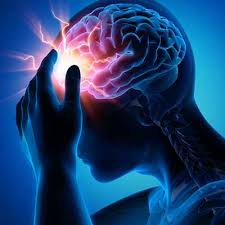People over 65 with epilepsy face special problems because they have a neurological disease and are also getting older, which means they need special care and management. Physiological changes, comorbidities, and cognitive difficulties can make it harder to treat and understand seizures as a person ages. Healthcare workers and caregivers who are helping older people with epilepsy need to understand these complicated dynamics.
This article goes into detail about the different aspects of epilepsy in older adults. It talks about how getting older affects the condition, how to diagnose it, how to treat it, cognitive and psychosocial factors, changes to lifestyle, and how important it is for caregivers to help older adults manage epilepsy.
1. An Introduction to Epilepsy in Older People
Putting epilepsy into the context of getting older
Epilepsy can happen to anyone at any age. But when it hits us in our golden years, it brings a whole new set of problems and things to think about.
The rates of prevalence and incidence in the senior population
People of all ages can have epilepsy. Like fine wine, our chances of getting epilepsy go up as we get older. Let’s look at the numbers and see what we’re up against.
2. Learn about how getting older affects epilepsy
Changes in the body and risk factors linked to getting older
As we get older, our bodies may start to fail us, which can make it harder to control our seizures. From slower metabolisms to painful joints, let’s look at how getting older affects this brain ride.
Problems with comorbidities and multiple prescriptions
While we’re adding more candles to our birthday cakes, we might have a few more health problems. Taking a bunch of different medicines at the same time makes handling epilepsy a huge balancing act.
3. Problems with diagnosing and evaluating older patients
Diagnostic Considerations Based on Age
Adults with seizures are like detectives; it’s difficult to determine what’s going on. Changing with age can make things more complicated, which can make it harder to find the person who did it. Let’s work together to solve this puzzle.
Tips and Tools for Making a Correct Diagnosis in Seniors
From EEGs to cognitive tests, older people may need a different set of tools to get a correct epilepsy diagnosis. Let’s look at the diagnostic tools and how they can help you find your way through this mess.
4. Customized treatment plans for older people with epilepsy
Medication Modifications and Things to Think About for Older Adults
One size does not fit all when it comes to treating epilepsy in older people. We’ll talk about how to change medicines so that they work better for people who have seen a few more seasons.
Alternative treatments and surgery choices for older patients
In some cases, standard medicines aren’t the only way to fight epilepsy. We will look into alternative treatments and surgical choices that are best for our experienced warriors who are dealing with epilepsy.
5. Things to think about when older adults with epilepsy are cognitive and psychosocial
How does epilepsy affect the brains of older people?
For older people with epilepsy, the disease can sometimes make it hard for them to think clearly. Memory problems, short attention spans, and slow brain speeds can all change at any time. It’s like your thoughts are playing hide-and-seek with your brain. Memory loss and mental fog shouldn’t take over, so it’s important to keep an eye on cognitive changes and work with medical professionals.
Help with social issues and mental health care for older people
People over 65 who have epilepsy may feel a lot of different feelings at once, from anger to worry. Remember that your mental health is just as important as your physical health. It can really help to join a support group, go to therapy, or even just connect with a friend. A heart-to-heart can be the best thing for the soul sometimes.
6: Ways for seniors to change their lifestyles and avoid seizures
Setting up a secure place for older people with epilepsy
Always put safety first, but especially when taking care of adults with epilepsy. Getting rid of things that could cause someone to trip or installing grab bars in the bathroom can help a lot in keeping people from hurting themselves during a seizure. Safety is the most important thing when it comes to setting the stage for a smooth performance.
Diet and exercise suggestions for lowering the risk of seizures
If you are an older person who has seizures, food and exercise can work together to help. If you want to avoid seizures, you should eat a balanced diet and stay busy. It’s like giving your body the right food and a good stretch to keep it in good shape. A healthy lifestyle is like a shield against unexpected plot twists.

























































































































































































